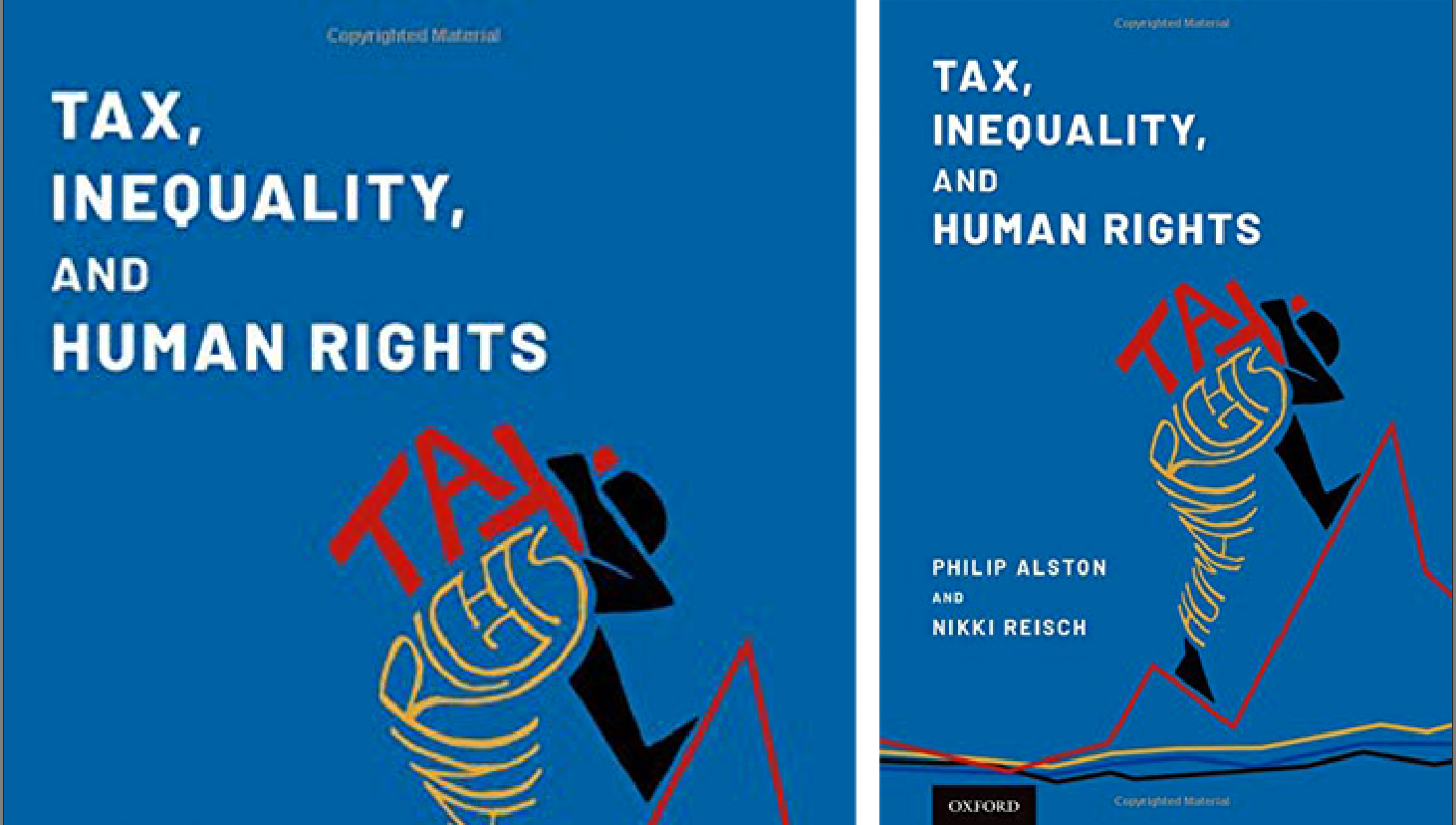School of Law Author Series 2020/21. Seminar 11 with Professor Philip Alston
School of Law Author Series 2020/21 - Conversations with Donna Lyons. Seminar 11 with Professor Philip Alston.
Professor Philip Alston at the School of Law, Trinity College Dublin, on his recent book, ‘Tax, Inequality, and Human Rights'.
Date and time: 3pm - 4pm Dublin (10am-11am New York), Wednesday, 11 November 2020.
Attendees can join the webinar directly via Zoom and the event will be simultaneously live-streamed on the Law School Facebook page. This event is free and open to all and there will be an opportunity for Q&A. Please note you can register in advance and the webinar can accommodate 100 attendees. Participants will be admitted on a first come, first served basis. If the webinar fills to capacity, it will be possible to watch the Facebook Live Stream, and a recording will also be made available following the event.
Philip G. Alston is John Norton Pomeroy Professor of Law at New York University School of Law. Professor Alston co-chairs the NYU Center for Human Rights and Global Justice and teaches international law, human rights law, economic and social rights, and strategic human rights litigation. As both a scholar and practitioner, his current work focuses on the human rights dimensions of issues such as neoliberal economic policies, climate change, artificial intelligence, and poverty elimination. He previously taught at the European University Institute, the Australian National University, Harvard Law School, and the Fletcher School of Law and Diplomacy. He was one of the founders of both the European Society of International Law and the Australian and New Zealand Society of International Law and was Editor-in-chief of the European Journal of International Law from 1996 through 2007. Since 2014, he has been UN Human Rights Council Special Rapporteur on extreme poverty and human rights. In that capacity he has undertaken official missions to a range of countries including China, the United States, Saudi Arabia, and the United Kingdom. From 2004 to 2010, he was UN Special Rapporteur on extrajudicial executions, monitoring unlawful killings around the world. He was also a member of the Security Council Commission of Inquiry into the Central African Republic and the Independent International Commission on Kyrgyzstan (2011) and the UN Group of Experts on Darfur (2007) and served as Special Adviser to the UN High Commissioner for Human Rights on the Millennium Development Goals (2002-07); chairperson (1991-98) and rapporteur (1987-91) of the UN Committee on Economic, Social, and Cultural Rights; and UNICEF’s Senior Legal Adviser on children’s rights (1986-92).
About 'Tax, Inequality, and Human Rights':
In ‘Tax, Inequality, and Human Rights’, experts in human rights law and in tax law debate the linkages between the two fields and highlight how each can help to tackle rapidly growing inequality in the economic, social, and political realms. Against a backdrop of systemic corporate tax avoidance, widespread use of tax havens, persistent pressures to embrace austerity policies, and growing gaps between the rich and poor, this book encourages readers to understand fiscal policy as human rights policy, and thus as having profound consequences for the well-being of citizens around the world. Prominent scholars and practitioners examine how the foundational principles of tax law and human rights law intersect and diverge; discuss the cross-border nature and human rights impacts of abusive practices like tax avoidance and evasion; question the reluctance of states to bring transparency and accountability to tax policies and practices; highlight the responsibility of private sector actors for shaping and misshaping tax laws; and critically evaluate domestic tax rules through the lens of equality and non-discrimination. The contributing authors also explore how international human rights obligations should influence the framework for both domestic and international tax reforms. They address what human rights law requires of state tax policies and how tax laws and loopholes affect the enjoyment of human rights by people outside a state's borders. Because tax and human rights both turn on the relationship between the individual and the state, neo-liberalism's erosion of the social contract threatens to undermine them both.


